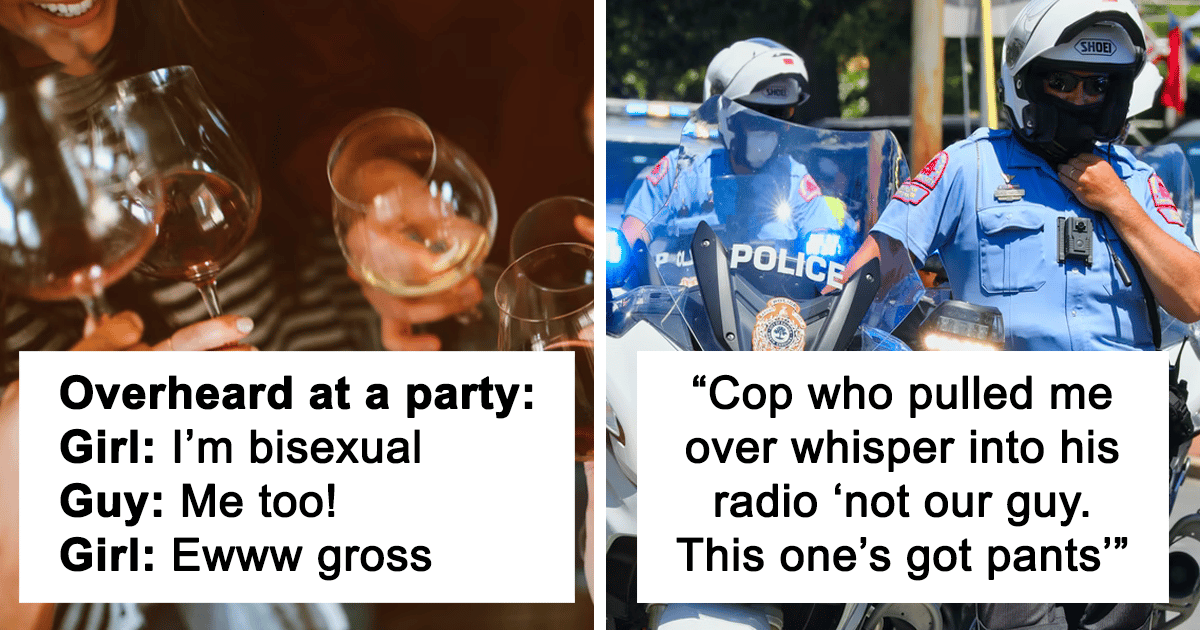San Francisco, L.A. and New Yorks Overheard accounts have immense popularity. And it seems like everyone,(including us) has a big eavesdropper within ourselves that can’t resist the conversations. Yes, it is considered to be rude and impolite when you secretly listen to someone’s private conversations, but sometimes, the conversations are so hard to resist that you can’t avoid them.
Below we have collected some tweets shared by people on Twitter sharing the conversations they’ve overheard that they couldn’t resist documenting. Whether it was someone at the fish market, grocery store, in a corporate meeting or at the restaurant, these interactions are equal parts bizarre and hilarious.
There were so many of them, that we decided to pick the best ones to share it with you all. When you are done reading the entire post, don’t forget to tell us which one is your favorite.

2
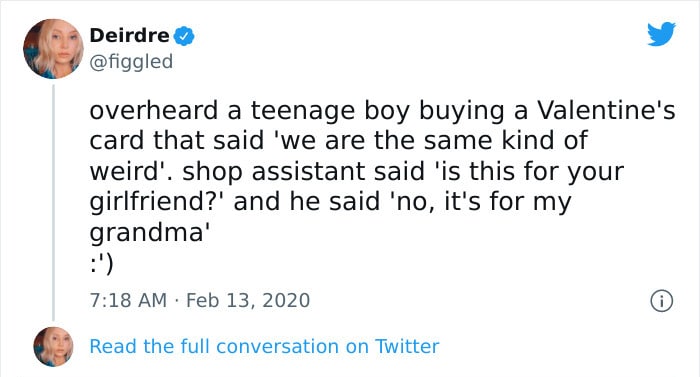
If you have sat in a restaurant near to a noisy woman, or have stood in a queue waiting for a coffee; you must have had such encounters in your life. Do you admit that you’ve been eavesdropping?
When the thought of listening to someone conversation pops in your head, you can instantly relate to words like “prying” and “nosy”. However, more often than not, these brief conversations are so confusing, that anyone can be tempted to stop and listen to them.
Team Hiptoro reached out to Dr. Lauren Emberson, a psychology professor at the University of British Columbia, to know why we humans react in a way, or why do we want to hear others’ conversations. She told us, that along with her colleagues they did a study called Overheard cell-phone conversations: when less speech is more distracting.
3

The researchers wanted to discover the thinking abilities of forty-one volunteers, by checking whether they were listing to two people talking, a monologue, a halflaouge and a one-sided conversation. The results of their research showed that overhearing a halfalogue was distracting as well decreased the performance.
were trying to see whether the thinking abilities of 41 volunteers were most affected by listening to two people talking, a monologue, silence, or a “halfalogue”, a one-sided conversation. The results showed that overhearing a “halfalogue” is distracting and decreases performance “on cognitive tasks designed to reflect the attentional demands of daily activities.”
She also told us that when we overhear a conversation on the cell phone, we are focusing more on breaking down what the other person is talking about, which makes it even harder for us to concentrate on the actual details. “By contrast, overhearing both sides of a cell-phone conversation or a monologue does not result in decreased performance.”
However, she explained that not listening to private conversations is challenging because our attentional systems automatically get diverted. “Our study showed that even when we instruct people not to listen to the conversations when they were doing attentionally demanding tasks, their attention was specifically drawn away from their task when they were listening to a cell phone conversation or a ‘halfalogue,‘” the professor explained.
4
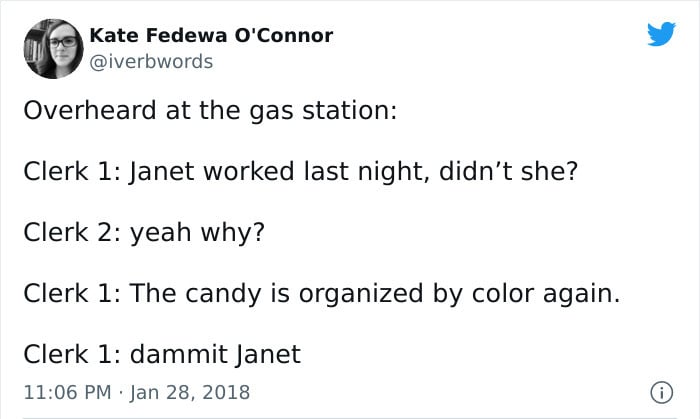
5

We don’t know the exact reason why it happens. Dr. Emberson further told us that that unpredictability of speech might have something to do here. “Remember that in a cell phone conversation, speech starts and stops,” she mentioned.
“We found that attention is drawn away specifically when the speech starts, not during the silences, suggesting that the unpredictable cell phone speech is hard for you to process compared to a dialogue (even when the speaker changes in a dialogue, it’s not as distracting).”
6
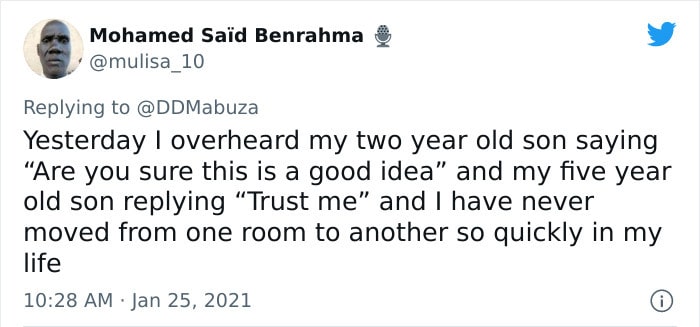
7
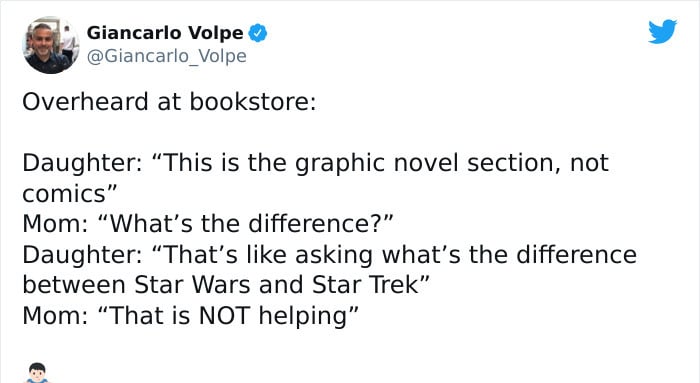
When we asked her whether people eavesdrop consciously, the professor replied that it’s definitely true and that she sometimes people consciously do it: “The inspiration of this study, though, was a feeling that I and many others have that you can’t help but eavesdrop on these cell phone conversations.”
She added: “I really didn’t want to listen to them but I felt I couldn’t filter them out. And that’s why we tested whether it is an automatic function of your attentional system to tune your mind into them and sure enough, that’s the case!”
8
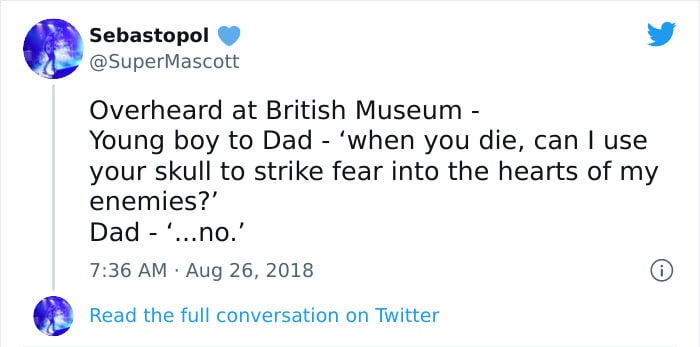
10

The results of the study revealed that overhearing conversations can make us feel irritated and annoyed. Still, almost every other person takes such interactions to the internet and look at it as a great source of entertainment. Dr. Emberson has offered one explanation for us: “These convos were very irritating at a time before texting when everyone was talking on their cell phones and it was very noisy with those conversations in public spaces like buses.”
11
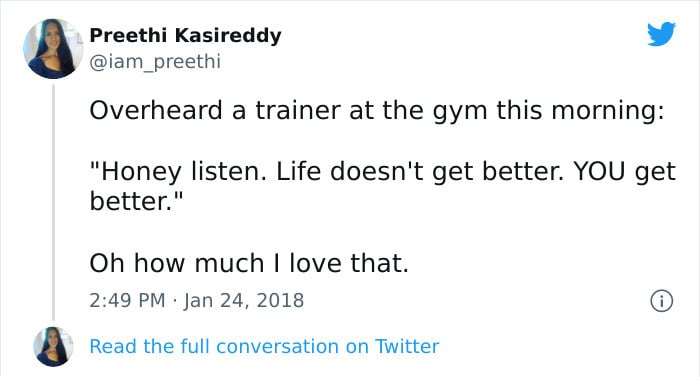
“Now most people text (myself included) so they might be more of a curiosity than anything else,” she mentioned. In her opinion, people find such conversation bizzar and funny “they are out of context (you only hear one half) and that engages your curiosity in a way.”
12

John Locke, the author of Eavesdropping: An Intimate History, and a professor of language science mentioned another reason why we might find one-sided conversation irritating. When someone is whispering or talking gently, it grabs people’s attention. However, when they are being loud, many become annoyed.
13
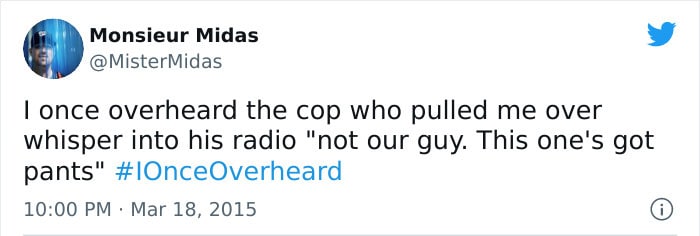
14

15

The reason behind it is that loud social behavior violates one basic law of nature: “We don’t like donations. We don’t like it when people present us with information about themselves that we’re not seeking.”
“[People] want to know what you’re truly like inside, not what others want them to think,” Locke said. “We love it when we get something that’s truly genuinely true about others and so we still prefer taking it, or if not taking it, extracting clues on our own.”
16

17

As humans, we are always interested to know how people behave while they are in a private space. We spend maximum time alone with our own thought, and when we get a chance, we want to know how others react when no one is observing them. “The only way you can know that is by looking at other people who think that they’re alone,” John Locke mentioned.
18

19
 Still, one thing we’re sure of—listening to strangers’ conversations can be hilarious. And the fact that we hear only a fraction of the conversation that doesn’t make any sense to us makes it even funnier.
Still, one thing we’re sure of—listening to strangers’ conversations can be hilarious. And the fact that we hear only a fraction of the conversation that doesn’t make any sense to us makes it even funnier.
20

21
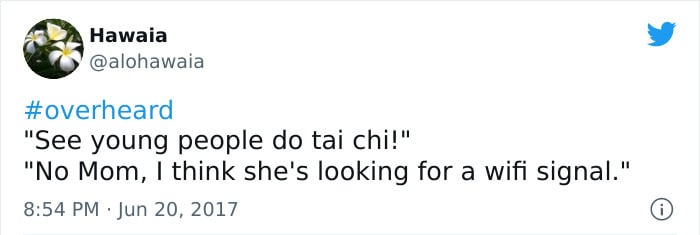
22

23

24

25
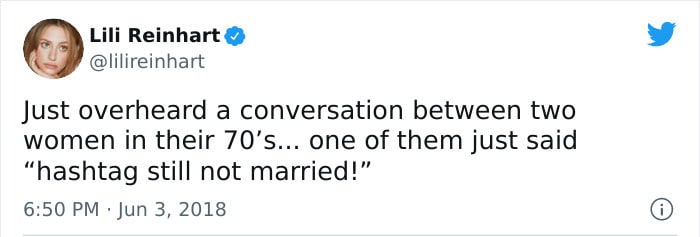
26
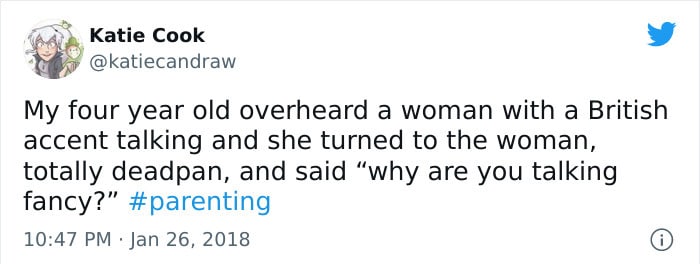
27
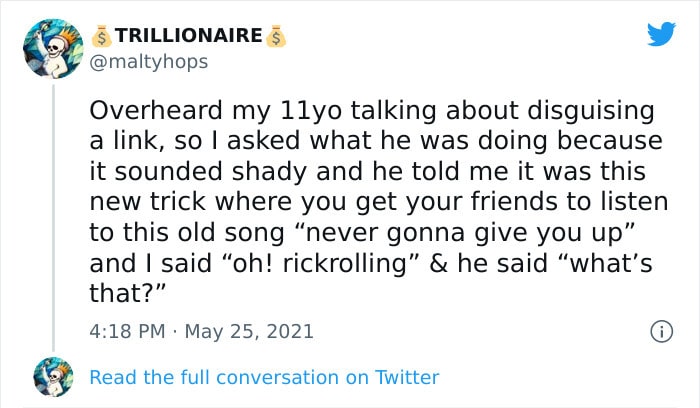
28
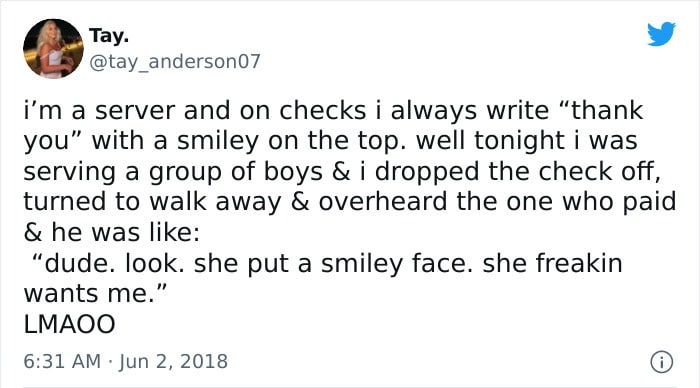
29

30
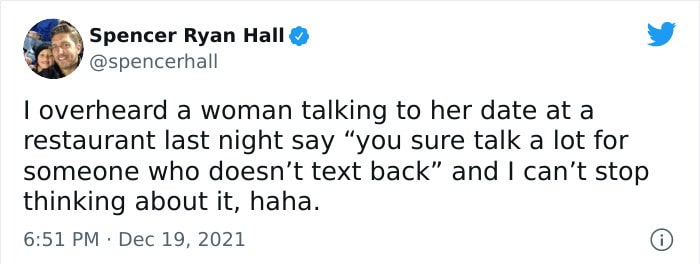
31
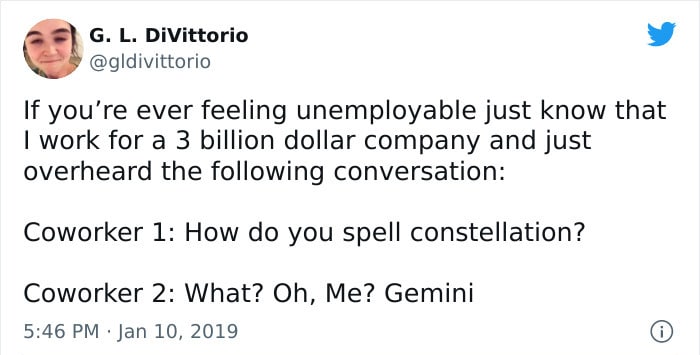
32
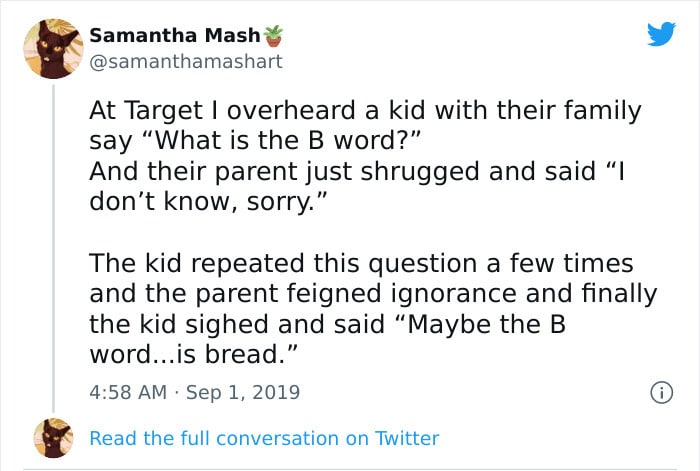
33

34

35
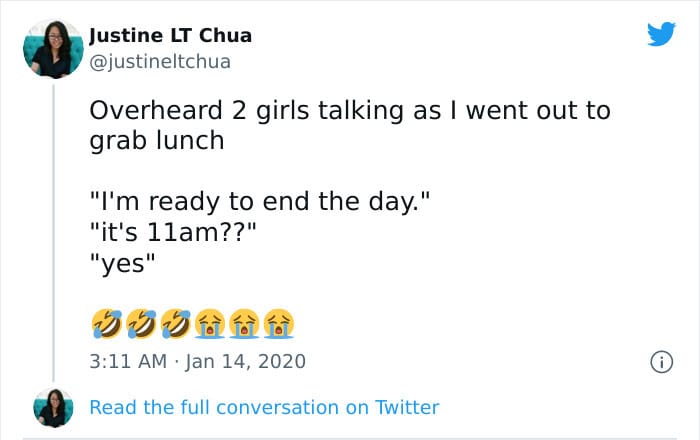
36



